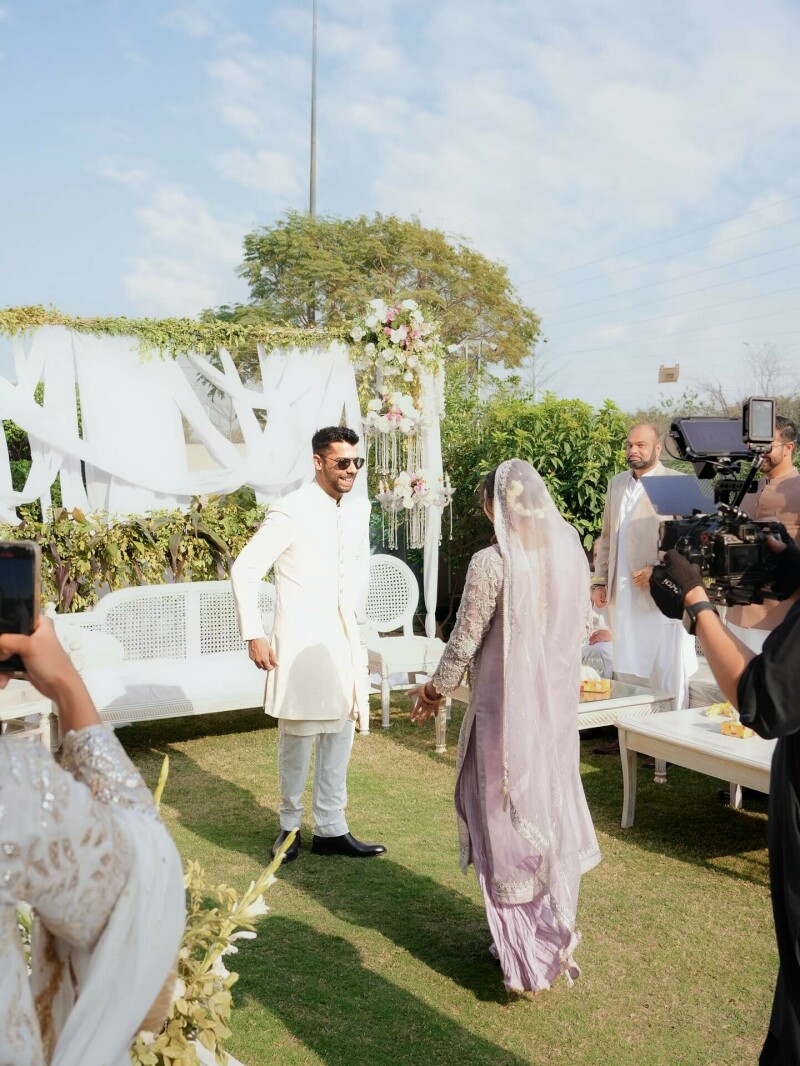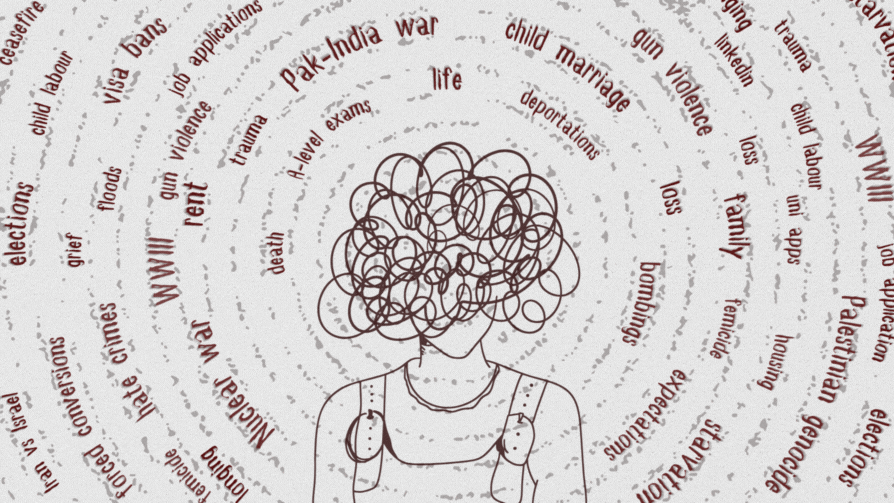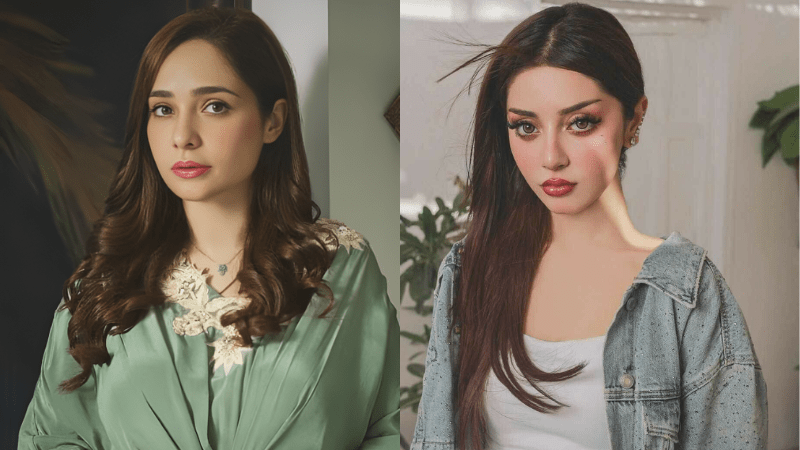Review: In Zid, desire is mostly passionless
TV serial Zid is turning out to be a complicated maze what with its characters facing dilemmas in multiple dimensions of their lives.
Each character’s issues are enmeshed with others in their orbit creating a complex puzzle of ideas and actions.
First, a recap: Saman (Maya Ali) is a feisty girl who, after two broken engagements, grudgingly agrees to marry Omar (Ahsan Khan), who lives in the US. Once in the US, we are introduced to his cousin Rukhi (Rabab Hashim) and her father Qasim (Imran Peerzada) as well as the mysterious Zainab (Nausheen Shah).
 |
| Official poster for Zid. |
When we left off, Saman moved in with her old college friend Zainab after it is revealed that Omar was married before. Saman is disapproving of Zainab's substance abuse fueled lifestyle. Zainab or ‘Z’ for short, also (unsurprisingly) turns out to be Saman’s husband’s first wife.
Saman seems to take this revelation with more amusement than shock. She then takes the meri sautan meri saheli stance, sticking on with Z despite her reservations.
Are we doomed to watch lacklustre depictions of desire in most of our dramas?
Maya Ali unfortunately plays the disgraced wife merely by huffing and puffing and threatening to blow her (rented) house down which is not terribly effective. Her character seems to be the only one without solid motivation, so we aren’t quite sure what path she wants to take to move on.
Z, true to her unstable, thrill seeking nature confides in Saman that she left Omar and her perfect but passionless marriage. That however, doesn’t stop her turning to him for funds whenever debt collectors come knocking on her door. Her search for passion leads her to finally commit to her on-again-off-again relationship with fellow junkie Michel and here is where Zid falters.
Now, Zainab’s relationship with Michel is supposedly based on co-dependence when it comes to substance abuse as well as supposedly, on desire. Though Bee Gul was successful in portraying these very same emotions successfully in Pehchan, where we understood Mansoor’s motivations and longing for his mistress as well as fondness for his wife, here Michel’s character doesn’t have the same resonance. Even if Michel is a fair-ish depiction of white-trash, his character just wasn’t fleshed out which in turn made the relationship and its passion hard to believe.
 |
| Nausheen Shah as the rebellious Zainab —Photo Courtesy: Zid's official Facebook page |
Is this spate of poorly written American (read Caucasian) characters small-screen revenge for Pakistanis being portrayed as hummus-eating, Arab-speaking, burqa-clad, angry flag-burning mobs on American TV dramas? How I wish our writers were that clever or deliberate.
While you make allowances for the fact that it is hard to portray desire on our television screens, it didn’t help that Nausheen Shah played her moments of supposed desire and longing like a school marm telling off a child to ‘behave yourself.’
Digressions aside, Z’s musings were too dialogue heavy and talk-y. Lines about how she still needed a man’s name to tie to her own sounded completely out of character as well. There was definitely quick plot progression with Z marrying Michel and then him succumbing to the grim reaper soon after but the relationship angle fell flat and forced.
At times zid (stubbornness) isn't a believable enough motivation
In other forced relationships, Omar (Ahsan Khan) ensures that Saman is back and quite literally a prisoner in her own home while Qassim Uncle (Imran Peerzada) holds Rukhi (Rabab Hashim) captive by tradition in his home – manjha beytha kar- along with the promise of a traditional wedding to David (Shaz Khan).
Going back to Saman, while she remains hurt about the false beginnings of their relationship and is always on the defensive with Omar, her motivations are very vague. Though her character acknowledges that she has no real reason, there is little self-reflection on her own situation. She and others too, are holding onto their stubborn ideas and even stating that “Zid aur zindagi ulhaj gayi hai”. Still, is stubbornness -- zid-- the only thing these characters hold dear?
 |
| Maya Ali plays the headstrong Saman |
There are some things in Zid that are very real and recognizable -- like the depiction that most people who move to the US do end up doing odd jobs to support themselves, the warm ways in which Rukhi tries to win over her father’s affections, the hurt and betrayal and wholly hypocritical behavior her father displays, that powerful scene when he tries to throw her out of the house but Rukhi just clings on tightly to him.
The best track so far happens to be Qassim Uncle and Rukhi. Marrying against his wishes to a man of her choosing was too much for her father to bear bringing out all the patriarchal ideas of honour and ownership that desi men hold dear. Though Rukhi makes every attempt to break through her father’s reticence, and he does eventually give in, there is tension here which makes for great viewing.
Zid relies on extremes to make a point
Finally, in episode 16 there is a really taut storyline circling back to the first time Rukhi went missing to her current disappearance. There is an element of mystery and the audience is left imagining the worst but mercifully the narrative refuses to be linear and revealing - at least for now. A tip of the hat to promo editors as well, for foiling audience expectations as opposed to the current trend of divulging the story in 30 seconds flat.
Still, other things rankle. For all her moral grand standing, Saman just seems to be making rent money to fuel Z’s addictions. Z’s character too, a prisoner of her desires, was imagined as someone with a complicated inner life and while Nausheen Shah’s portrayal of a relapsing addict is far more convincing than the holiday rehab in Goya but with Z thrown out of her home and having to seek refuge at Omar and Saman’s home, the dusri biwi trope sees a resurrection.
Zid attempts to question the idea of women and their independence and the price she must pay to have her way. Though Bee Gul’s strength has been in creating realistic characters with shades of grey, in writing a more commercial script, she has created an action packed story which keeps things moving but she also relies on extremes to make a point.
And so, Z can’t just be the first wife who wanted a little more from her life, she must also be a drug addict. Rukhi can’t have sustained tension with her father about her life choices, she must pay for her choices possibly with her life, and Saman can’t search for her own sense of independence within a perfectly salvageable marriage, she must take rather immature bull headed decisions.
 |
| Rubab Hashim plays Rukhi in 'Zid.'— Photo Courtesy:dramaindustry.pk |
Still, Zid has a gravitas in the issues that it presents. There is an element of depth in the crafting of the dialogues and the situations play along seamlessly. Fingers crossed that the puzzles of the maze falls into place.
Sadaf Siddique is freelance writer, film and drama enthusiast and sometime drama queen not necessarily in that order.










